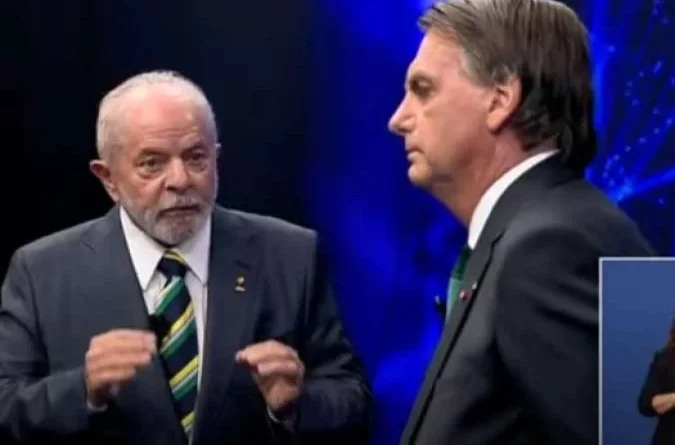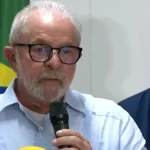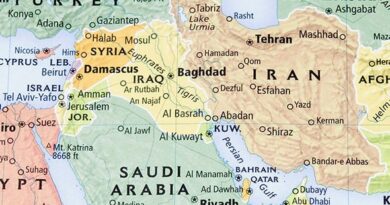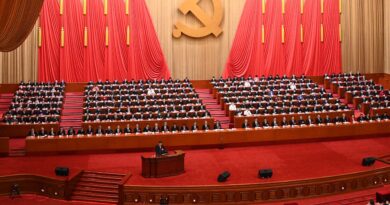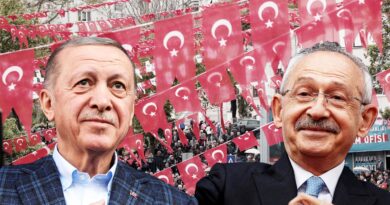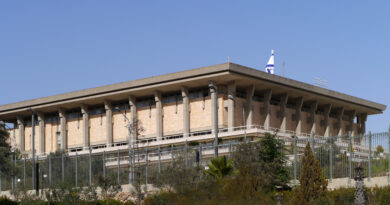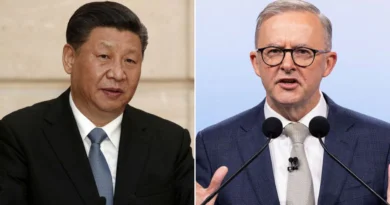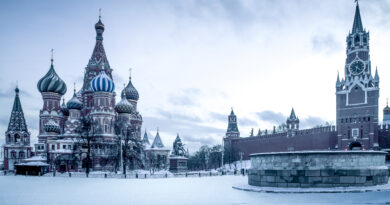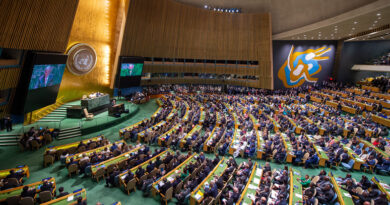The dirtiest campaign in Brazil
JUAN MIGUEL MUNOZ
São Paulo
It is the dirtiest presidential election campaign in the history of Brazil. With two weeks to go before the final verdict, President Jair Bolsonaro and the candidate and former president, Luiz Inácio Lula da Silva, have given each other no respite for the past two weeks in personal attacks that often exceed the sordid. The far-right leader already used obscene manipulations in his 2018 electoral race. Now, Lula's team has joined the defamation strategy.
The Bolsonaro campaign has launched the falsehood on social networks that Lula is possessed by the devil and that Satanism has joined the leftist candidate. The matter has a certain importance –although not exaggerated– in a country much given to esotericism and astrology. The next accusation is more earthly. Lula has a pact with the Primeiro Comando da Capital (PCC), the main criminal organization in Brazil. The basis for such an accusation is that Lula was the candidate with the most votes in the country's prisons. The evangelical pastor Damares Alves – a newly elected senator and former Minister of Women, Family and Human Rights in the Bolsonaro government – has insinuated the involvement of the left in an extremely lurid operation: the kidnapping of underage girls on the island of Marajo the ones that had their teeth pulled out for a softer practice of oral sex.
The nonsense is not minor in the Workers' Party campaign. In social networks it has been suggested that Bolsonaro practiced bestiality with a chicken in his youth; that during a trip to the Amazon he was willing to cannibalism, or that prostitution with minors excites him. This accusation of pedophilia after he made an unfortunate comment – Bolsonaro himself admits that he is often foul-mouthed – about the beauty of a group of Venezuelan migrant girls in a community near Brasilia.
Bolsonaro has even been accused of Freemasonry, a delicate matter for the still majority Catholic community in the country, although since independence in 1822 numerous national heroes involved in the break with Portugal and in the establishment of the republic were openly Freemasons.
In the debate this Sunday night, Lula and Bolsonaro attenuated that desire to sink into the dunghill. Although they called each other corrupt and stubborn liars on numerous occasions, both candidates put aside the filth and focused on more typical issues of an electoral campaign. The pandemic, corruption and economic management focused the discussion.
Lula always alludes to his administration during the eight years he governed Brazil between 2003 and 2010 without proposing anything resembling a government program. Analysts believe that with a Congress and a Senate that will be very difficult to manage – the Bolsonarist party and candidates achieved very good results in the first round – Lula does not want to tie his hands with a detailed program.
The current president is also very predictable. He insists that he will only protect traditional family values and religious values. And, of course, that he is only capable of preventing Brazil from following the leftist trend that has recently prevailed in several Latin American countries (Colombia, Chile, Argentina). Bolsonaro did not miss the opportunity to stress that Lula had good relations with Hugo Chávez (Venezuela), Daniel Ortega (Nicaragua) or Evo Morales (Bolivia). Lula, for his part, counterattacked with an incontestable fact. "No one wants to come to Brazil," he said, making it clear that official visits by foreign leaders have been very rare in the last four years.
Both showed at the end what was the tone of the debate. "Lula, you are a national disgrace who wants to return to the scene of the crime," the current president attacked. "Bolsonaro is cheeky, a little dictator," replied the PT leader. On October 28, two days before the second round, the faces will be seen again in the final debate.
As the campaign continues, both are confident of victory. Bolsonaro frequently discredits the polls, and in a way he is right. In the first round, the polls were correct with the percentage of votes that Lula would obtain, but they clearly failed with that of the president, who obtained almost ten points more than those predicted in the predictions of Datafolha and the Ipec institute.
The latest poll, published on Friday, predicts that Lula would get 49% of the vote compared to 44% for Bolsonaro. Lula's percentage would rise to 53%, enough to win the presidency, in the counting of valid votes.
The PT candidate – who enjoys much more electoral pull than his party – only clearly wins in the Northeast region, where his percentage reaches 68% compared to 27% for Bolsonaro. It is the native region of this 76-year-old from Pernambuco, a region that encompasses nine states – Bahia is the largest – historically affected by the abandonment of central power, chieftaincy and emigration to the industrial and more prosperous cities of the south.
In the south – Paraná, Santa Catarina and Río Grande do Sul – Bolsonaro clearly prevails (55%-38%). They are, along with São Paulo, the richest states in Brazil, the regions in which the majority of European immigrants settled –especially Italians and Germans, but also Spanish, Swiss, Poles, Ukrainians…– since the mid-nineteenth century. They look suspiciously at the north, whose inhabitants they accuse of being too dependent on subsidy and public aid.
In the transcendental Southeast region, the most populous in the country (São Paulo, Rio de Janeiro and Minas Gerais), the poll favors Bolsonaro by a narrow margin (48%-44%). And in the sparsely populated North (Amazon region) and Center-West (agribusiness stronghold), Bolsonaro also prevails, with a wide advantage (55%-39%) in the Center-West (Mato Grosso, Mato Grosso do Sul, Goias and the Federal District).
Until October 29, Bolsonaro and Lula will continue touring Brazil. The winner will face a difficult situation. Among other reasons because the president has very little room for maneuver and because more than 90% of the budget is already committed, most of it in function salaries and pensions. To which is added the complicated global situation. Difficult task.

